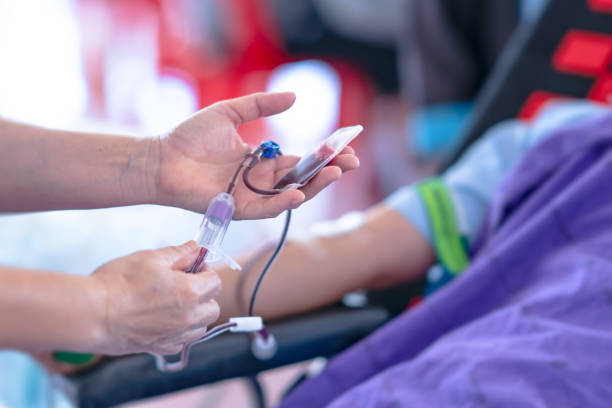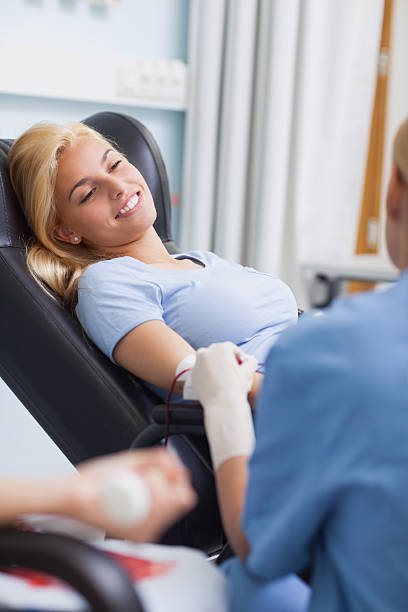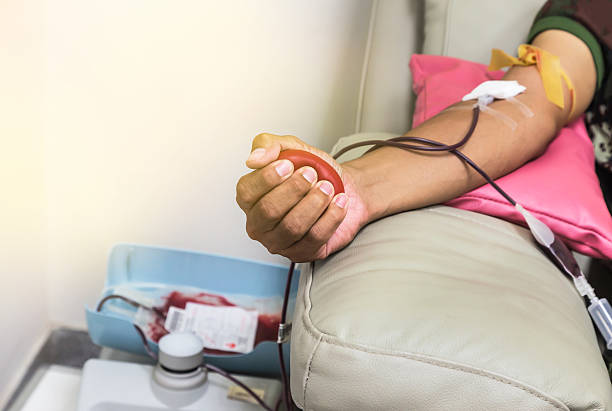Understanding the Financial Aspects of Plasma Donation
Plasma donation is a vital medical procedure that plays a crucial role in the treatment of various diseases and medical conditions. As an essential component of blood, plasma is used in a variety of treatments, including those for hemophilia, immune deficiencies, and certain types of cancer. One of the primary questions potential donors often have is about the compensation they might receive for their time and effort. This comprehensive guide aims to shed light on the financial aspects of plasma donation, providing an in-depth understanding of how much donors can expect to be paid, the factors influencing this payment, and the broader implications of plasma donation.
The Basics of Plasma Donation
Plasma donation involves a process where blood is drawn from a donor, separated into its components, and then the plasma is collected while the remaining components are returned to the donor’s body. Unlike whole blood donation, which typically takes about 10-15 minutes, plasma donation can take up to an hour. The process is generally safe and well-tolerated by donors. Plasma, the liquid part of blood, is crucial for the production of clotting factors, immune globulins, and other therapeutic products.
Compensation for Plasma Donation
The compensation for plasma donation varies widely depending on several factors. These include the donor’s location, the plasma collection center, and the current demand for plasma. On average, donors can expect to receive between $30 to $50 per donation. Some centers offer higher payments, especially if there is a high demand for plasma or if the donor is providing their plasma regularly. Additionally, first-time donors might receive higher incentives as part of promotional offers to encourage new donors.
Factors Influencing Plasma Donation Compensation
Several factors influence how much donors are compensated for their plasma donation. One significant factor is the location of the donation center. Centers in urban areas or regions with higher living costs may offer higher compensation compared to those in rural areas. Additionally, plasma centers operate on a supply-and-demand basis. When there is a higher demand for plasma, such as during shortages or for specific medical conditions, compensation might be increased to attract more donors.
Another influencing factor is the frequency of donations. Many centers have programs that reward regular donors with bonuses or higher payments. Donors who make frequent visits to donate plasma may benefit from these programs, which can significantly increase their overall earnings. Plasma donation centers also sometimes offer referral bonuses or other incentives to donors who bring in new individuals to donate.
The Importance of Plasma Donation
Understanding the financial aspect of plasma donation is important, but it’s equally crucial to recognize the profound impact that plasma donation has on medical treatments and patient care. Plasma-derived products are used in treating a range of conditions, from immune system disorders to blood clotting issues. For many patients, these treatments are lifesaving. Donors contribute to a system that ensures a steady supply of these critical therapies, making their role in the healthcare system invaluable.
Ethical Considerations and Regulation
Plasma donation is regulated by various health authorities to ensure the safety and well-being of donors. Centers must adhere to strict guidelines regarding the collection, processing, and testing of plasma. Ethical considerations are also paramount, particularly concerning the compensation of donors. While compensation is an incentive for many, it is essential that it does not compromise the safety of the donation process or lead to exploitation. Regulatory bodies ensure that compensation practices are fair and transparent, and that donors are well-informed about the procedures and risks involved.
The Experience of Plasma Donors
For many, the decision to donate plasma is driven by both altruism and the desire to receive compensation. Donors often report feeling a sense of fulfillment from knowing that their contribution helps others in need. The process itself is straightforward and generally well-tolerated. Most donors experience minimal discomfort, with the procedure being comparable to giving blood in terms of sensation. Plasma centers strive to provide a comfortable environment for donors, offering amenities such as reclining chairs, entertainment options, and refreshments to make the experience as pleasant as possible.
Long-Term Considerations for Donors
Donors who participate in plasma donation regularly may have specific considerations to keep in mind. It is important to maintain a healthy lifestyle and stay hydrated to ensure the body can replenish plasma effectively. Regular donors should also be aware of any guidelines set by the donation center regarding the frequency of donations to avoid potential health issues. Plasma centers typically provide guidance on the recommended donation schedule and any necessary precautions to take before and after donating.
Conclusion
In summary, plasma donation is a crucial aspect of medical treatment and patient care, with compensation playing a significant role in encouraging individuals to participate. The amount donors receive can vary based on location, demand, and frequency of donations. While financial compensation is a practical consideration, the broader impact of plasma donation on medical treatments and patient outcomes underscores the importance of this selfless act. Donors contribute to a life-saving system, and their role is vital in ensuring the availability of essential therapies for those in need.




